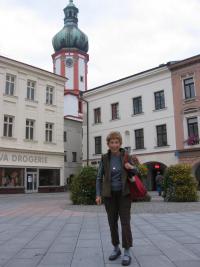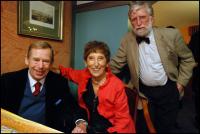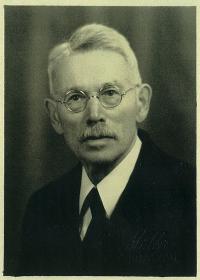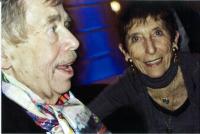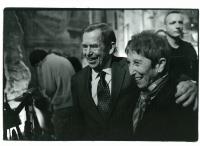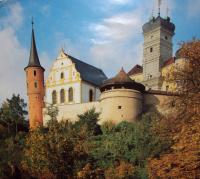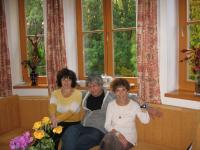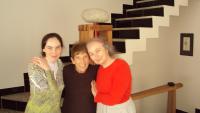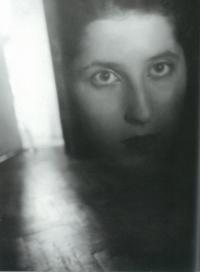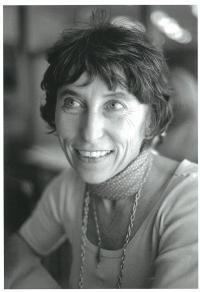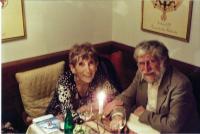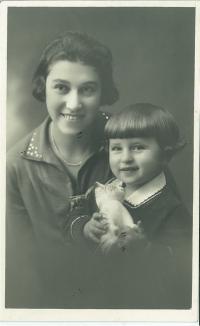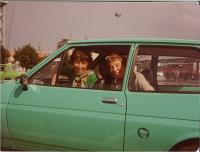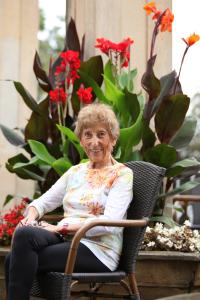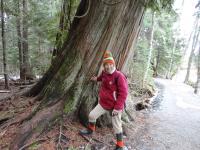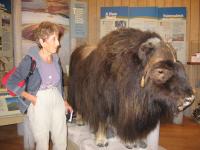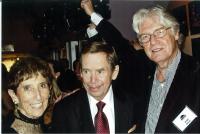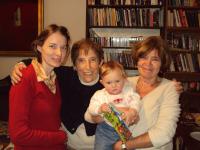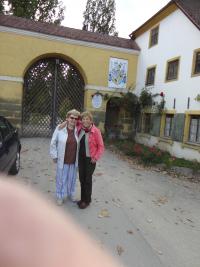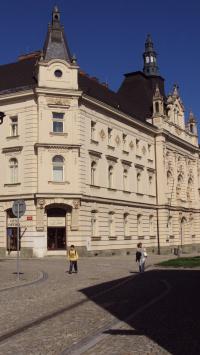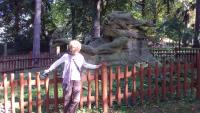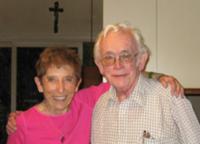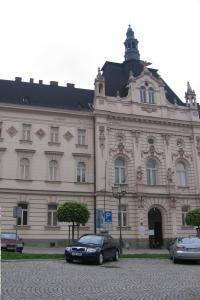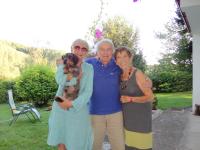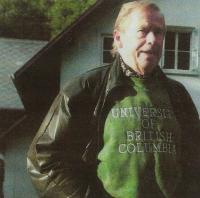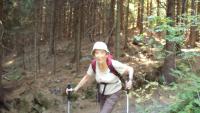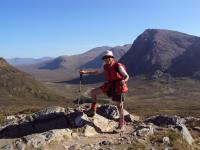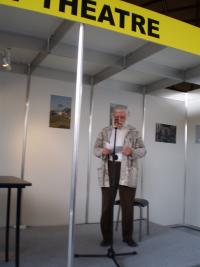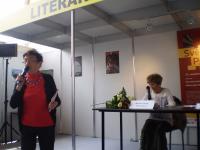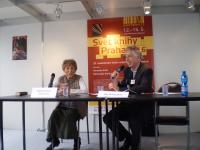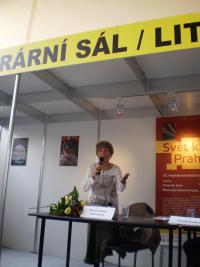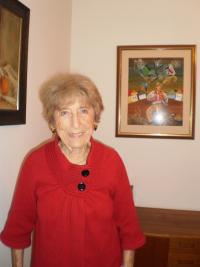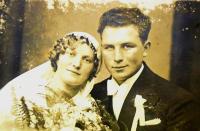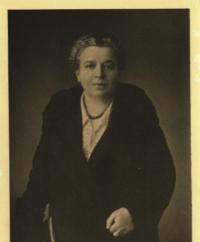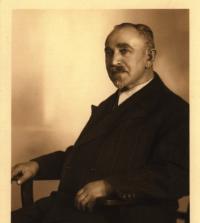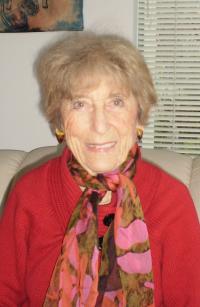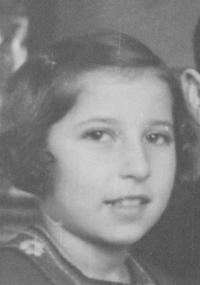We also took photos. We had there – I can´t find the word – some 500 German soldiers – somebody will help me? – yes, a garrison. They used to come to have their photos taken to the Foto Doda. I had to speak to them as I could speak German. So, the horrible German language was of use now, in different surroundings. The soldiers came, of course I saw enemies in them, but we still took their photos. Then something strange happened. Somewhat later, in the years 1943, 44, letters arrived from little villages in Austria.Reading the letters, well, we, Doda too, we both started to cry. The parents wrote in them: Our beloved son is no longer alive. He was killed in the war – ist gefallen in German. You can say it in the same way in Czech. And I saw: Please, make four large photos and about a few dozen small ones for me, so I did. And some were framed. I saw the faces of the boys. They were boys, almost children. And this somehow burned out the hatred I had felt to the soldiers. Traveling to Hrádeček: And then Vašek invited us to pick mushrooms and said he will make mushrooms with eggs for us a week later. “Yes, yes, we´ll go.” So, we did. It was getting a bit dark, which was good, and we were heading towards Hrádeček. This time my mother was with me. Then we saw lights and the police. What next? The police stopped us. My mother said, “So, we´ve had it.” The policemen came and asked, “What are you doing here?” No, first “Warum fahren sie hier?” because we had a German car. Then, “Passport bitte.” So, we handed him our Canadian passports and started to speak in Czech. This was a bit too much for the policemen, but we kept sitting. “Why are you driving here and what are you doing in this place?” they asked. Thank God there was some big God down there: “There was a detour and it brought us to this little road here, gentlemen, you know.” My mother was charming, “Gentlemen, I´ll tell you, we´ve got no idea where we are. That´s our problem.” So, we got around them and I looked at Hrádeček. I could see a curtain, Havel knew we were there and all that. We heard the curtain rustle. Well, we got ‘round them, by simply acting stupid. It was great. They wrote down everything and then they said, “Ladies, ladies,” now they were calling us ladies, “drive straight up, left, there is a bigger road, then again left, then right, the road goes in circles and it´ll take you to the road to Špindlerův Mlýn. But don´t drive on small roads.” They were almost like fathers. And we said, “Thank you, you´ve saved our lives here.” And off we went.

